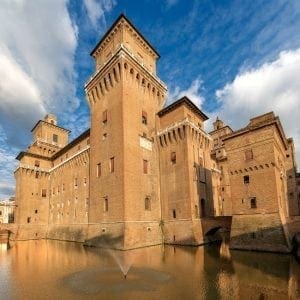 The next World War, it has been said, will be fought over water. While water is certainly our most precious resource, we’re hoping that this will never become our reality. In Cape Town, South Africa, however, we’re facing the what’s been termed the biggest drought in a hundred years; it’s even been said that all the factors that have led to this water crisis could not combine in this way for a period of a thousand years. What’s impressive, however, is the hospitality sector’s unified response. While sustainability in tourism has been our focus all along, we’re seeing this in practice in industry like never before.
The next World War, it has been said, will be fought over water. While water is certainly our most precious resource, we’re hoping that this will never become our reality. In Cape Town, South Africa, however, we’re facing the what’s been termed the biggest drought in a hundred years; it’s even been said that all the factors that have led to this water crisis could not combine in this way for a period of a thousand years. What’s impressive, however, is the hospitality sector’s unified response. While sustainability in tourism has been our focus all along, we’re seeing this in practice in industry like never before.
With water restrictions in place that, among other limitations, mean that swimming pools cannot be filled with potable water, gardens may not be watered with tap water and more, hotels have had to step up their game.
Hospitality industry seeks genuine sustainability in tourism
There is extensive messaging in hotels regarding the water shortages. This is in addition to practical measures the accommodation industry has taken such as removing bath plugs and encouraging guests to take two-minute showers and reducing laundry routines. Besides the hotels, tourism businesses are acutely aware of the need for water conservation.
Among other measures, the Vineyard Hotel has spent R5-million on water-saving initiatives over the past 5 years, devoted 654 hours to clearing alien vegetation in 2016, fitted taps with aerators, implemented the use of paper towels instead of hand towels to reduce the laundry load and is recycling laundry water. They collect all unfinished bottled water for use in floor washing and only use borehole water for irrigation of gardens and swimming pools.
The famed Belmond Mount Nelson has a natural spring on the property and is using this for multiple water requirements. Hotel Verde, dubbed ÒAfrica’s Greenest HotelÓ, has a natural pool as a swimming pool, part of an entire ecosystem that is designed to work symbiotically. The Radisson Blu in the city center has closed its popular swimming pool for the time being.
Tsogo Sun has made arrangements to have water available for guests through alternative water augmentation such as boreholes and by installing a desalination plant. This will enable them to, in close consultation with the City of Cape Town, take some of their largest properties off the water grid and support the efforts to save water. The hotels that will be supported by the desalination plant include Southern Sun The Cullinan, Southern Sun Waterfront and The Westin Cape Town, which is owned by the Hospitality Property Fund, a subsidiary of Tsogo Sun Holdings.
Protea Hotels by Marriott’s senior regional director Sean Maher has said apart from guests being advised on the crisis upon check-in, in welcome letters and other communication, all its swimming pools are covered, bottled water has been removed from rooms and waterless methods are being used for cleaning paving and outside areas.
Smaller hotels and other accommodation establishments that we’ve surveyed are turning to reducing water pressure, using paper serviettes and replacing bed linen less frequently, to minimize their impact on water resources.
Airbnb is informing hosts and guests using the platform in the Cape Peninsula about the level 5 water restrictions and encourages its community to take tips from local authorities to help guide them to use water sparingly.
In terms of local attractions, Cape Town’s V&A Waterfront announced recently that they would provide the land for a new desalination plantâ for free. The modular land-based plant, which will produce 2 million litres per dayâ will soon be operational.
The V&A Waterfront identified air conditioning as by far the biggest consumer of water, and they’ve reduced consumption by using sea water to do their air conditioning now.
Cape Point, the Kirstenbosch National Botanical Gardens, Groot Constantia and the Robben Island Museum have all found infrastructural ways of saving water and have been doing so for years.
All of these efforts are just part of the bigger picture, one that has local residents using alternative means of using water, such as collecting grey water in buckets to use to flush toilets, reducing shower times; in fact, almost anything that can be done to save water is being done.
A global imperative
Sustainability in tourism is no option, it’s a reality for all; for us in Cape Town, a world-class destination, this has been brought home to us in a very real way. I’d like to suggest that hospitality professionals across the globe adopt forward thinking when it comes to water usage. In design and planning a property and in everyday activities, even small adaptations can go a long way to saving large amounts of water without compromising on the visitor experience.
About the author
 Enver Duminy is CEO of Cape Town Tourism
Enver Duminy is CEO of Cape Town Tourism















